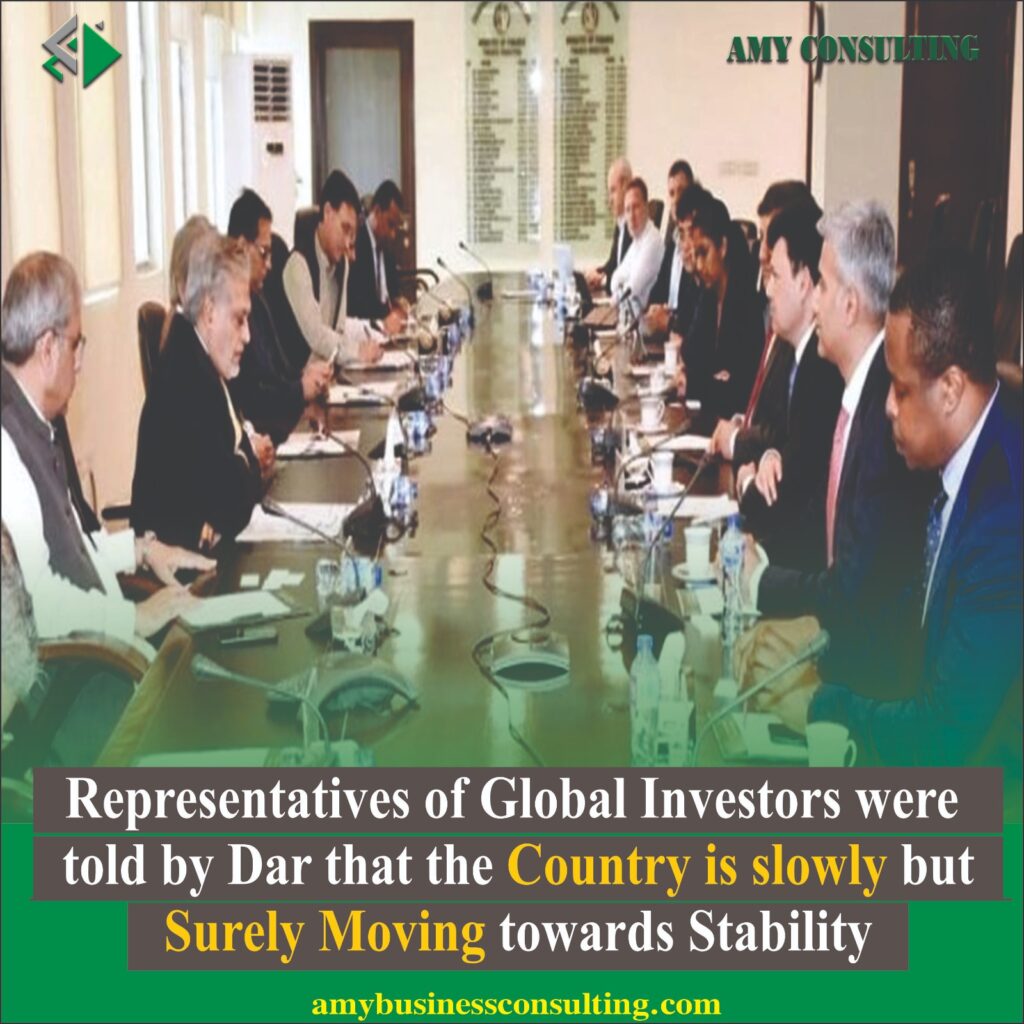Category: Blogs
INTEREST RATES: NO MORE ROOM FOR TIGHTENING

Despite interest rates in Pakistan being almost at historic highs, the country is still experiencing negative real rates for both current and future inflation. While some argue that keeping interest rates in positive territory is necessary to control inflation, others believe that rising interest rates may not be effective in curbing cost-push inflation.
Let’s assess whether increasing interest rates further would effectively control inflation and have merit. Lowering the pressure of borrowing is one of the main reasons for raising interest rates, along with providing real returns for savers that are adjusted for inflation. I aim to analyze both perspectives and assess the effectiveness of tightening monetary policy.
The government of Pakistan is the dominant borrower, which is a positive aspect. To be precise, three-fourths (76 percent) of total banking deposits and exactly half (48 percent) of the banking assets are borrowed by the government from commercial banks. The government borrowing represents 72 percent of the share in broad money (M2) stock, while public sector entities receive 6 percent.
Whether the change in interest rates can impact the government’s spending behavior is the question. Historically, including more recent times, it has been suggested that government borrowing and spending are largely insulated from interest rates. Conventional monetary tightening’s efficacy in controlling overall credit behavior and money creation was seriously limited.
The private sector accounts for 32 percent of the broad money and 28 percent of the net domestic assets (NDA) held by banks. Concessionary finance accounts for 15 percent within private credit. Rs9.2 trillion worth of private credit has been disbursed, including Rs1.6 trillion in concessionary finance through schemes such as TERF, ERF, LTTF, and others, with liquidity provided by the State Bank of Pakistan and risk assumed by banks and other financial institutions.
Compared to both developed and other developing economies, Pakistan has a much lower share of private credit. In the US, domestic private credit to GDP is over 200 percent and in many other developed countries it is over 100 percent, while in India it is over 50 percent and approaching 50 percent in Bangladesh. Private credit to GDP in Pakistan is under 20 percent, whereas its peak was 27 percent in 2007.
In Pakistan, almost two-thirds of the total private credit pie is skewed towards manufacturing composition. Due to import restrictions and overall demand destruction, LSM growth has already taken a nosedive. Due to the increasing finance cost, some players may default on repayment as they sell assets to pay off bank loans.
Consumer finance only accounts for 10 percent of private credit, 3 percent of broad money, and an even smaller share of total domestic credit. This fiscal year, it’s already down by 3 percent, and there isn’t much space left for further decline.
The growth of broad money supply has reached 15 percent this fiscal year. However, the recorded inflation number of 36 percent indicates that real money growth is significantly negative. This reflects a sharp decline in the real money supply.
There isn’t much to curtail by further increasing the rates, and that’s the story of the credit. From Pakistan’s perspective, curbing the current account deficit is another way to approach the situation. Despite lifting import restrictions, the surplus remains, indicating that the balance is likely to remain under control.
Looking at the composition of the inflation basket provides an alternative perspective on how curbing demand can affect inflation efficacy. Food items make up over 30 percent of urban baskets and 40 percent of rural baskets. The government exercises control over prices in the food value chain in many ways. Provincial governments set the support price for both wheat and sugar, for example.
Attempts are made by district management to regulate the retail prices of various food items. Not much can be done to control food prices by raising interest rates, without debating the distortions created due to such practices.
Hawks argue that savers are at a disadvantage due to negative real rates. They are, indeed. While bank deposits are offering at best 20 percent, inflation is anticipated to be around 30 percent.
Nonetheless, a significant portion of the economy operates informally and remains outside the purview of the banking system. The fact that currency in circulation is extraordinarily high, accounting for 44 percent of bank deposits and 30 percent of broad money supply, is evident.
It is likely one of the highest in the world. Despite high interest rates and the depreciation of the Pak Rupee, the informality or weakness in the economy has been increasing in recent years (and quarters). Informal actors opt to stay outside the system for various reasons, primarily to avoid being taxed, and are not enticed by higher returns offered by bank deposits or other formal savings options that are linked to interest rates.
Financial exclusion affects the poor, with only around 67 million bank accounts for a population of approximately 230 million. Due to religious reasons, many individuals with bank accounts are unable to access conventional interest-bearing deposits.
SAARC SUGGESTS THAT PAKISTAN REQUIRES A FUNDAMENTAL SHIFT IN ITS APPROACH TOWARDS ECONOMIC DEVELOPMENT

On Sunday, Iftikhar Ali Malik, President of the South Asian Association of Regional Cooperation (SAARC) Chamber of Commerce and Industry, stated that Pakistan requires a fundamental change in its approach to governance and economic development, indicating a need for a paradigm shift.
During a meeting with a group of traders, led by The Falcon International’s CEO Mian Ejaz Ahmad Arain, in Lahore, it was stated that Pakistan is facing several obstacles including political instability, corruption, poverty, and terrorism, according to a press release.
For sustainable stabilization of its economy and to offset the hovering threat of default, Pakistan needs a paradigm shift to strengthen its relations with neighboring countries such as China, India, Afghanistan, and Iran, as well as engage with regional organizations like SAARC and the Economic Cooperation Organization (ECO). He emphasized that economic security is necessary for every state.
Few suggest that Pakistan needs to move away from its traditional mindset and adopt a more progressive and pragmatic approach to tackle its problems. This could include measures such as strengthening democracy, promoting merit-based appointments, investing in education and healthcare, promoting economic growth and job creation, and improving relations with neighbouring countries. He said this in the prevailing quagmire.
Pakistan’s economy is in a dilapidated condition, and for its survival, the country must revisit its priorities to steer out of the prevailing economic crunch, he said, regardless of the reasons.
The philosophy of globalization is now transforming into regional blocks, as 18 countries, including China, Russia, Turkey, Malaysia, and India, have jointly planned future trade using their local currencies, neglecting the US dollar monopoly. This was stated by Iftikhar Ali Malik, an octogenarian veteran trade leader of South Asia.
Our border sharing rival country, which has seen overall exports cross an all-time high mark of $750 billion since gaining independence in 1947, is specifically projected to experience economic growth. However, they are now eyeing a near future goal of achieving $2 trillion.
After independence, Pakistan’s economy was in better shape than India’s until 1970, but it gradually started dwindling due to the absence of wise decisions.
Sharing his rich and diversified life experience, Iftikhar Ali Malik stated that two factors should be considered as the main contributors to the overall growth and stability of the nation. That is why the foreign policy of rival countries has been redesigned to have a parallel influence on both superpowers, whether it be America or China.
FREQUENT CHANGES IN TAX LAWS LEADING TO WRONG ASSESSMENTS

Tax authorities often incorrectly apply relevant provisions and assess tax liabilities of taxpayers due to frequent and sometimes multiple changes in tax laws within a year.
The government should strive to balance the need for updating tax laws with the need to provide stability and predictability to taxpayers, as they claimed that updating tax laws results in uncertainty, compliance costs, inefficiencies, disincentives, and revenue losses.
It was noted by the sources that the situation is complex, as even the appellate forums can become confused if litigants do not provide relevant provisions of the law from the relevant time. This results in unnecessary time being wasted in trying to determine the law.
When tax laws are amended, it often leads to a dispute between the department and taxpayers. One party may challenge the incorrect application of the law.
While the taxpayers disagree with the approach and prefer to challenge the same for an appropriate interpretation, the department insists that the amendments made to the law would prevail.
A fundamental change in tax liability takes place when the law changes in a specific year, leading to a long-standing struggle between taxpayers and the department, which has jeopardized revenue collection in the country.
According to sources, the situation worsens when specific industrial sectors are subjected to a special tax collection procedure mandated by the rules.
Sales tax is charged at a rate of eight rupees per unit of electricity consumed in the production of steel billets, ingots, and mild steel products (excluding stainless steel) in the sector of steel re-rolling mills.
The special procedure, as a settled principle, has an overriding Non-obstante effect that prevails over the general clauses of an Act. As a result, it is considered a final discharge of sales tax liability, which the department often disagrees with and prefers to challenge before appellate forums.
The department, though, is unable to support his position with either a principle of statutory interpretation or a precedent.
TAXPAYERS URGED TO MAKE ON-TIME PAYMENTS

Zafar Iqbal Khan, Chief Commissioner of Inland Revenue at the Regional Tax Office (RTO) in Peshawar, has encouraged taxpayers to deposit their outstanding taxes in a timely manner in order to contribute toward the national ex-chequer.
During the monthly online ‘open court’ held in the Regional Tax Office, he was speaking. During the proceeding, the Chief Commissioner was assisted by Commissioner Peshawar Zone Mohammad Ayaz, Commissioner Corporate Zone Shaukat Hayat, Additional Commissioner Headquarters Bahadar Shah Afridi, Assistant Commissioner/Focal Person Faheem Rashid, and Chief Commissioner Withholding Zone Tariq Jamal Khattak.
The resolution of taxpayers’ problems at their doorsteps is the aim behind holding the online court, said the Chief Commissioner. In his opinion, the online court is the best platform for connecting tax collectors with taxpayers. He encouraged taxpayers to step forward and inform him directly about their problems and difficulties.
The open court proceeding was of keen interest to the taxpayers who asked various questions about the collection of different taxes. The participants were satisfied with the answers provided by the Chief Commissioner and his team.
Representatives of Global Investors were told by Dar that the Country is Slowly but Surely Moving towards Stability

Ishaq Dar, the Finance Minister, has met with a delegation from JPMorgan in Dubai.
On Friday, Minister for Finance and Revenue Senator Mohammad Ishaq Dar met with a delegation of representatives from world-renowned investment companies led by Imran Zaidi of JP Morgan Dubai.
A press release stated that the meeting was attended by Tariq Bajwa, who is the Special Assistant to the Prime Minister on Finance, Tariq Pasha, who is the SAPM on Revenue, the Secretary Finance, and senior officers from the Finance Division.
A comprehensive discussion was held between the two sides regarding Pakistan’s economic situation, the International Monetary Fund program, market perception and outlook, as well as external account situations.
Despite the challenging economic situation, the government is steering the economy towards stability and growth, as shared by the finance minister regarding the country’s economic outlook.
It was high time to invest in Pakistan as the country was slowly but surely moving toward economic stability, he said.
As finance minister, Ishaq Dar successfully completed the IMF program in the past and the present government is committed to fulfilling all international obligations by completing the current program.
